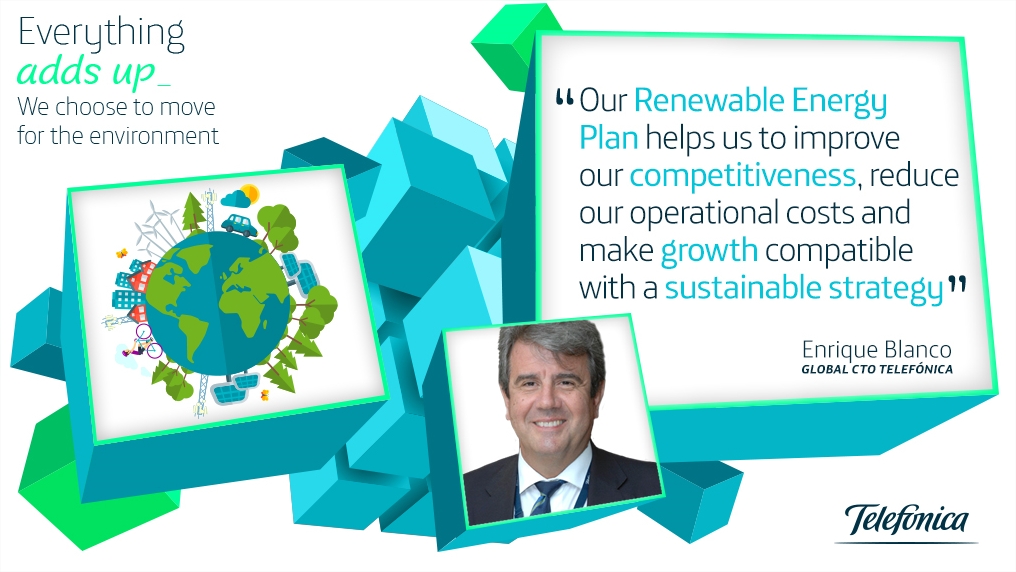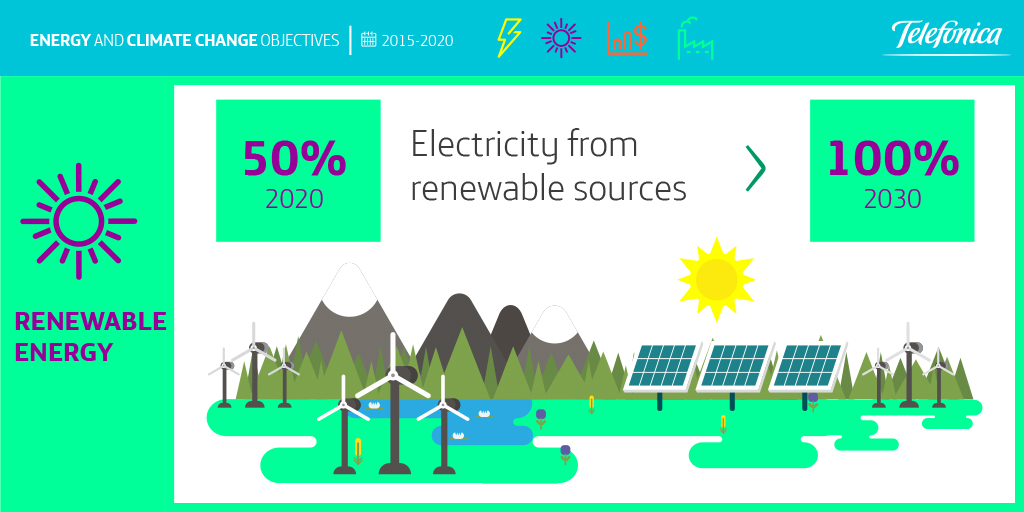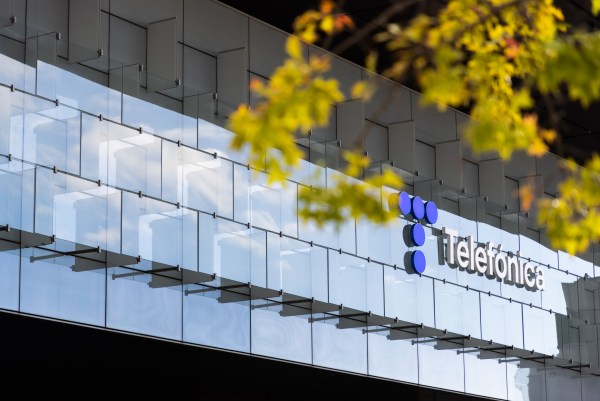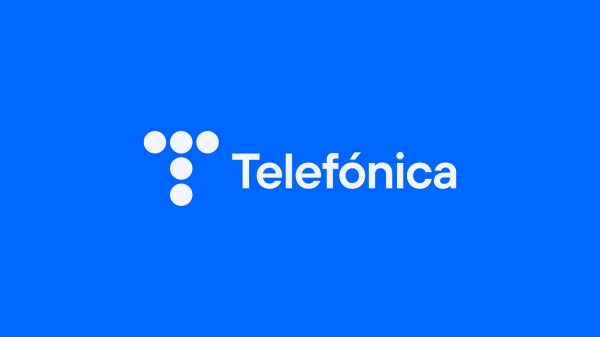Renewable energies are gaining ground. By expanding its reach beyond the energy sector it will not only reduce carbon emissions, but it will also improve lives, create jobs – in 2016, more than 9.8 million people worked in the sector –, it will facilitate the achievement of development goals and ensure a cleaner and more prosperous future as REthinking Energy, the new report of the International Renewable Energy Agency (IRENA), states. One of the initiatives that is pushing, at the corporate level, this movement is RE100, with about 100 adhered global companies such as Apple, Facebook, Google, Ikea o Telefónica.
Hence the support of all companies is needed to accelerate. For Telefónica, green energy represents a way to improve its competitiveness:
This explains the boost it gave in 2016 to its program, by doubling the use of renewables, to 44%. The objective? Reach 50% by 2020 and 100% by 2030, combined with a reduction in energy consumption.
In order to make its commitment public, Telefónica has joined RE100, a global and collaborative initiative involving influential businesses committed to achieving 100% renewable electricity in order to massively increase the demand for renewable energy. “Our Renewable Energy Plan helps us to improve our competitiveness, reduce our operational costs and to make growth compatible with a sustainable strategy. Our goal is to have the best network, one that not only allows us to offer excellent connectivity in technological terms, but also one that is the most efficient and clean in the sector in terms of energy and carbon”, explains Enrique Blanco, Telefónica’s Global CTO.

Sam Kimmins, Head of RE100, The Climate Group says: “By joining RE100 and progressing its renewable electricity goals, Telefónica is demonstrating that climate leadership and business leadership go hand in hand. Going 100% renewable means Telefónica is saving on energy costs while preventing CO2 emissions – that’s a smart business decision. The company is one of the largest multinationals in Spain with a large electricity footprint and even larger global reach. How it chooses to source its energy matters in driving market change and delivering on global climate goals.”
Telefónica’s Renewable Energy Plan includes four action areas, depending on the markets in which the company operates and the regulations in force in each one: acquisition of renewable electricity with a guarantee of origin, long-term power purchase agreements (PPA), shorter bilateral agreements and self-production. The company estimates that the Renewable Energy Plan will allow Telefónica to save 6% in energy costs by 2030.
The company estimates that the Renewable Energy Plan will allow Telefónica to save 6% in energy costs by 2030
The progress achieved this year through the Plan is mostly due to purchasing renewable electricity with guarantees of origin in Spain, which represents 79% of Telefónica’s energy consumption in the country, as well as the commitment of the operations in the United Kingdom and Germany, which are already 100% renewable.
The United Kingdom and Germany are already 100% renewable
In addition, in other countries such as Costa Rica and Uruguay, the electricity consumed by the company is renewable by more than 90%, thanks to the high development of these technologies in these countries.
In Costa Rica and Uruguay, the electricity consumed by the company is renewable by more than 90%
PPAs are the preferred course of action in Latin America, where Telefónica Mexico’s power agreement is especially noteworthy: it will have two photovoltaic solar power plants that will be operational by the end of 2017 and will supply the operation for 15 years. This represents 50% of its annual electrical energy consumption.
In 2017 and 2018, new PPAs will be signed in other markets where the regulation allows this, such as Chile, Argentina and Colombia.
Bilateral agreements are available in various countries. For example, Telefónica acquired renewable energy in Brazil, where it is the company with the largest number of buildings in the free electric market. These are short to medium-term contracts, which provide savings of more than 15 million euros a year. Other national branches, such as Chile, Peru and Colombia have also undertaken projects for the purchase of clean energy.
The company has 4,200 mobile telephone base stations that self-generate clean electricity
Finally, Telefónica is self-generating renewable energy and innovating to increase its use in the network. Currently, the company has 4,200 mobile telephone base stations that self-generate clean electricity, while in Uruguay 16 photovoltaic solar power plants are being installed in rural areas. With a power of 24kWp, they generate almost 600MWh of renewable energy each year, equivalent to the average consumption of 172 households. In addition, in the company’s Madrid business complex, Distrito Telefónica, solar panels generate more than 3GWh/year.
In addition, in the last 2 years the company has invested 1.4 million dollars in photovoltaic generation systems in Colombia, which has allowed for the replacement of equipment that used to consume diesel fuel 24 hours a day. In doing so, the emission of 474 tCO2 were avoided, the equivalent to the annual absorption of 91 hectares of forest, with approximate annual savings of almost 500,000 dollars.
Given the success in Colombia, Telefónica has decided to reduce annual diesel consumption by 4% worldwide by implementing the project in other operations.








